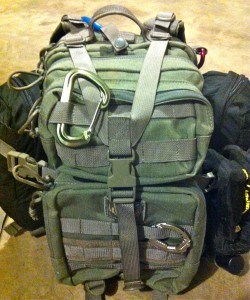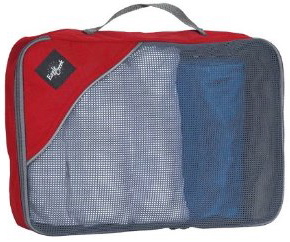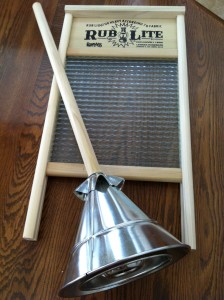by Nick Romaniello
Overlanders: One man’s survival is another man’s vacation.
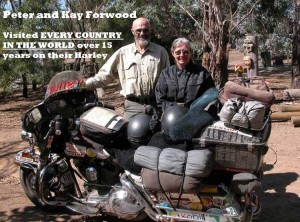 I’m going to stray away from my home improvement centered writing from time to time; today I want to discuss another passion of mine and it’s overlooked connection to the world of prepping.
I’m going to stray away from my home improvement centered writing from time to time; today I want to discuss another passion of mine and it’s overlooked connection to the world of prepping.
While the term “Overlanding” may still be unknown to many, it is in fact a long standing segment of the adventure travel community that traces it’s roots to earliest days of the automobile when brave souls set out to see the world on wheels. Overland Journal, the leading publication on the subject, defines overlanding as:
“Self-reliant adventure travel to remote destinations where the journey is the primary goal. Typically, but not exclusively, accommodated by mechanized off-highway capable transport (from bicycles to trucks) where the principal form of lodging is camping; often lasting for extended lengths of time (months to years) and often spanning international boundaries”.
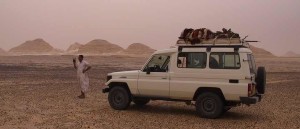 With many of these travelers now blogging as they go, it’s easier than ever to follow along as individuals, teams, and families with kids traverse continents and even circumnavigate the globe and to learn from their unique experiences. Dealing with war zones, limited supplies, civil unrest, stranded vehicles and lack of medical care can all be part of daily life for the
With many of these travelers now blogging as they go, it’s easier than ever to follow along as individuals, teams, and families with kids traverse continents and even circumnavigate the globe and to learn from their unique experiences. Dealing with war zones, limited supplies, civil unrest, stranded vehicles and lack of medical care can all be part of daily life for the 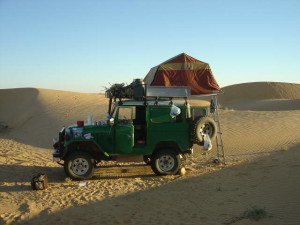 overlander. The techniques and gear of these hearty world travelers are tested and proven in the harshest environments on a regular basis–rather than just in theoretical end-times scenarios–and should be looked at by preppers as a valuable resource. An overlander may find themselves in the Amazon, the Sahara, or Siberia and have to be ready for anything. People from all countries and cultures are often quick to assist these travelers, in ways we would never expect in the west. But there are also frequent occasions when an overlander will find themselves in a situation where they are completely dependent upon their own skills and equipment to get themselves through tough situations or terrain.
overlander. The techniques and gear of these hearty world travelers are tested and proven in the harshest environments on a regular basis–rather than just in theoretical end-times scenarios–and should be looked at by preppers as a valuable resource. An overlander may find themselves in the Amazon, the Sahara, or Siberia and have to be ready for anything. People from all countries and cultures are often quick to assist these travelers, in ways we would never expect in the west. But there are also frequent occasions when an overlander will find themselves in a situation where they are completely dependent upon their own skills and equipment to get themselves through tough situations or terrain.
Motorcyclist Tiffany Coates found herself confronted by AK-47 wielding bandits in Kazakhstan. Pablo Rey’s 4WD broke down in the uninhabited desert of Sudan. Simon Thomas had to ride out of the Brazilian rainforest–with a broken neck after–after his motorcycle veered off a wooden bridge. Anything that can happen in a collapse situation has already happened to members of the overlanding community, and it rarely stops them from continuing on their amazing journeys. Even their day to day living activities such as generating electricity, communicating, and replenishing food stores that many Americans would consider unbearable are just part of the adventure when roaming the globe. The enjoyment of interacting with fascinating cultures and seeing awe inspiring natural wonders far offset the hardships of this method of travel, but the need to prepare is absolute.
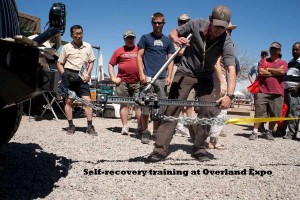 Like preppers, overlanders love gear and training. Catalogs and websites provide a wealth of options for mobile self-reliance equipment. Skill building is equally important both before departure and learning location specific techniques from indigenous people while traveling. Knowledge of vehicle recovery comes in handy where tow trucks fear to tread, and medical training can mean the difference between life and death when the nearest hospital is 400 miles away on unpaved roads. Events such as the annual Overland Expo in Arizona or the Horizons Unlimited meetings held worldwide offer clinics and lectures on subjects vital to successfully managing a global journey with confidence.
Like preppers, overlanders love gear and training. Catalogs and websites provide a wealth of options for mobile self-reliance equipment. Skill building is equally important both before departure and learning location specific techniques from indigenous people while traveling. Knowledge of vehicle recovery comes in handy where tow trucks fear to tread, and medical training can mean the difference between life and death when the nearest hospital is 400 miles away on unpaved roads. Events such as the annual Overland Expo in Arizona or the Horizons Unlimited meetings held worldwide offer clinics and lectures on subjects vital to successfully managing a global journey with confidence.
It’s well worth looking into the world of overlanding to see survival and self reliance skills and gear in action by people who are having the time of their lives. Below are some great links to get you started:
http://www.overlandjournal.com/
http://www.horizonsunlimited.com/
http://www.expeditionportal.com/

